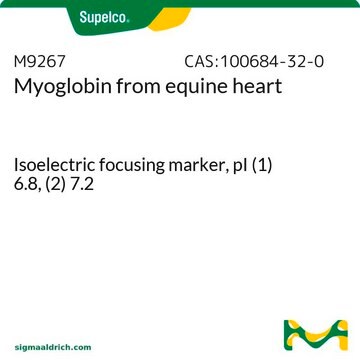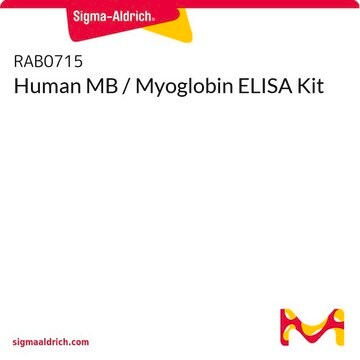M0630
Myoglobin from equine skeletal muscle
95-100%, essentially salt-free, lyophilized powder
Synonym(s):
Myoglobin from horse skeletal muscle
About This Item
Recommended Products
biological source
equine skeletal muscle
Quality Level
Assay
95-100%
form
essentially salt-free, lyophilized powder
mol wt
~17 kDa(lit.)
Iron content
0.25-0.32%
technique(s)
mass spectrometry (MS): suitable
solubility
H2O: soluble 10 mg/mL
UniProt accession no.
storage temp.
−20°C
Gene Information
horse ... MB(100054434)
Looking for similar products? Visit Product Comparison Guide
Application
Biochem/physiol Actions
Storage Class Code
11 - Combustible Solids
WGK
WGK 3
Flash Point(F)
Not applicable
Flash Point(C)
Not applicable
Personal Protective Equipment
Certificates of Analysis (COA)
Search for Certificates of Analysis (COA) by entering the products Lot/Batch Number. Lot and Batch Numbers can be found on a product’s label following the words ‘Lot’ or ‘Batch’.
Already Own This Product?
Find documentation for the products that you have recently purchased in the Document Library.
Customers Also Viewed
Articles
Professors summarize recent 2D materials synthesis advancements and biosensing applications in various fields.
Chromatograms
application for HPLCOur team of scientists has experience in all areas of research including Life Science, Material Science, Chemical Synthesis, Chromatography, Analytical and many others.
Contact Technical Service










